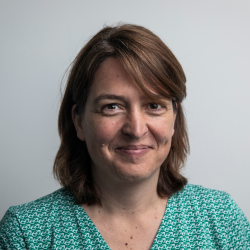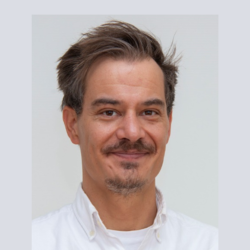Meet the organisers

Saskia van Mil
Saskia van Mil (PhD) is Professor of Molecular and Translational Metabolism at the University Medical Center Utrecht, The Netherlands.
She received her PhD from the University of Utrecht in 2004, on the topic of genetic disorders of pediatric cholestasis. As a post-doc at Imperial College London, United Kingdom, she studied the role of the bile salt sensor farnesoid X receptor (FXR) in intrahepatic cholestasis of pregnancy.
Since then, she has been intrigued by the versatility in molecular mechanisms of transcription by the nuclear receptor FXR and its therapeutic potential. Having received funding from the Netherlands’ Organisation of Scientific Research, European Commission, Dutch Digestive Foundation and DSM, her group studies the molecular and translational aspects of energy metabolism in the liver and the intestine, with a specific focus on the role of FXR in metabolic disorders (e.g. NASH) and disorders of intestinal integrity (e.g. IBD) and optimising the efficacy of FXR agonist treatment. In partnerships with clinical and industrial collaborators, her group aims to translate these research findings to improve patient care.

Yvonne Vercoulen
Yvonne Vercoulen is a principal investigator and associate professor at the Center for Molecular Medicine of the UMC Utrecht, and a member of the Utrecht Young Academy.
Throughout her career she has developed a fascination for immune regulation and aims to understand how errors result in tissue inflammation and cancer. She trained as a PhD student in T cell immune regulation at Utrecht University, and as a Marie-Curie international postdoctoral fellow in T cell receptor signal transduction at UC San Francisco.
Dr. Vercoulen’s team works at the interface of immunology and cancer to identify cellular and molecular underpinnings of disease using spatial omics technology. The lab asks fundamental questions to, for example, understand how immune cells contribute to cancer development, prognosis and therapy response.
The team has developed multiplex spatial analyses technology integrating microscopy with imaging mass cytometry and applies both protein and spatial RNA analyses to investigate the interplay between different cell types in the tissue. Studying tissue and intercellular communication in the tumor microenvironment is essential to understand the mechanisms of disease and therapy response. Dr. Vercoulen’s team collaborates closely with clinicians and researchers from multiple disciplines and strives to drive the field of spatial tissue biology forward and bring this to a level of clinical application.

Kristof Van Avondt
Kristof Van Avondt (PhD) is team lead of the Spatial Omics Accelerator and assistant professor at the University Medical Center Utrecht, The Netherlands.
He received his PhD from the Utrecht University on the topic of neutrophil immune regulation. As a postdoc, he continued studying neutrophil function and its implications in various diseases. First in sickle cell disease at Sanquin Research Amsterdam, The Netherlands, later in aging and cardiovascular disease at LMU Munich, Germany, and at WWU Münster, Germany.
Ever since, he has been interested in the spatial organization of neutrophils and other cell types and their implications in health and disease. In his role within the Spatial Omics Accelerator, he oversees the integration of advanced spatial technologies to analyse biological molecules within their tissue context, providing researchers with detailed insights into cellular organization and function. Under his guidance, the accelerator aims to drive innovation and contribute to the development of spatial omics methodologies.

